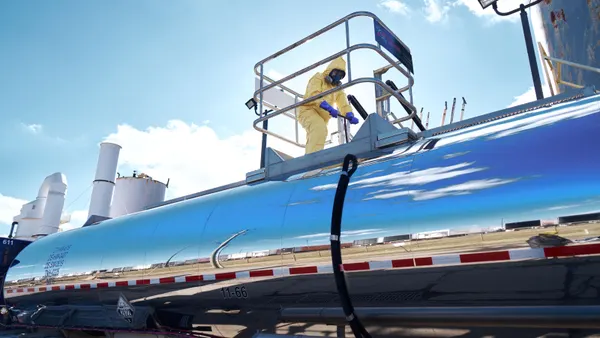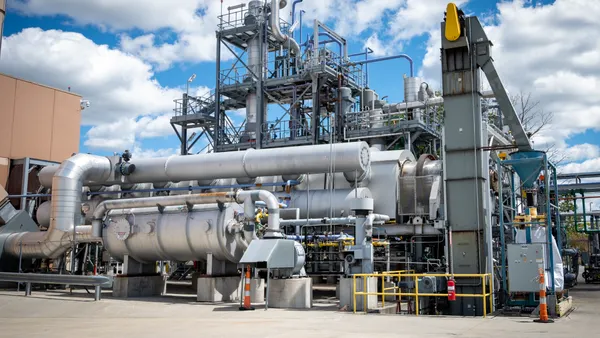UPDATE: January 13, 2020: The Senate passed the "Save Our Seas Act 2.0" on Friday in a unanimous vote. Sen. Tom Udall of New Mexico was among those who had initially argued the bill would not actively tackle the larger problem of plastics, before stronger waste reduction language made it into the final draft.
Some industry players cheered the bill's passage, with the Grocery Manufacturers Association calling it "a promising step in the right direction" toward addressing marine debris and pollution. The nonprofit Ocean Conservancy similarly greeted the news. The bill now goes to the House of Representatives.
Dive Brief:
- A multi-pronged piece of federal legislation known as the "Save Our Seas 2.0 Act" (collectively S.1982) recently made multiple advancements, despite recent opposition. Two bills (S.2260 and S.2372) were passed in their respective U.S. Senate committees last week, while a third (S.2364) awaits action by the Senate Commerce Committee.
- The legislation intends to reduce plastic pollution in the environment, namely waterways, through means such as innovative clean-up efforts and finding new uses for existing plastic waste. It has bipartisan backing in Congress, along with support from the American Chemistry Council and the Plastics Industry Association, but is controversial among environmental groups.
- Last week, more than three dozen groups sent a letter of opposition to the co-sponsors, Sen. Dan Sullivan (R-Alaska) and Sen. Sheldon Whitehouse (D-R.I.), saying the legislation does not provide a "comprehensive approach to solving the growing problem of plastic pollution and certain provisions of the bill will make the problem worse."
Dive Insight:
This new legislation builds on the first Save our Seas Act, which became law last year and has become a focal point for environmental groups in recent weeks. While they applaud the goal of getting plastics out of waterways, the groups believe this latest package won't be effective unless it also addresses source reduction.
The bill's suggestion to use innovative waste interception technologies such as litter traps and "trash wheels" is seen as positive, but critics say that just attacks the problem once pollution already is in the water. Instead, they would also like to see the legislation include mandatory reductions in plastic production, especially for single-use packaging, similar to what the European Parliament passed earlier this year.
"This is not a serious proposal that deals with the scope of the plastic pollution problems," Judith Enck, founder of Beyond Plastics and a former regional administrator for the U.S. EPA, told Waste Dive. "We've all learned about 'reduce, reuse, recycle,' and plastic recycling has been a monumental failure. So why keep doing the same thing and not focus on reduction?"
A particularly contentious portion removed from S.2260 would have required the National Academy of Sciences to conduct a study to advance the chemical recycling of plastics. This was backed by plastics industry groups – who view chemical recycling as an important part of their materials' future – but opposed by environmental groups concerned about the possible promotion of incineration, pyrolysis and gasification projects.
"We didn't view that as an objective study if it was to 'advance' the technologies," said Enck, who also remains skeptical of new replacement language calling for a report to examine innovative uses for plastic waste other than in infrastructure. "It's fairly obvious that what they plan is the same thing as in the previous bill, they just don't name the technologies."
Other elements of the legislation are seen as more positive, though lacking sufficient funding to make a difference. One example is a "Genius Prize," mentioned in a new version of S.2364, to be awarded for innovations that have the potential to reduce plastic waste and prevent marine debris. Waterway clean-up innovation grants worth a total of $10 million, and infrastructure grants worth $55 million, are also seen as too low for a national scale.
Despite these concerns, other groups such as the Ocean Conservancy strongly support the Save Our Seas 2.0 Act. They call it "one of the many solutions" and an "important and necessary step" to address the ocean plastic problem. In their view, it includes important and specific interventions, such as waste management and recycling strategies and prioritizing research initiatives.
The U.S. House of Representatives is also considering companion legislation (H.R. 3969) that was introduced in July.









